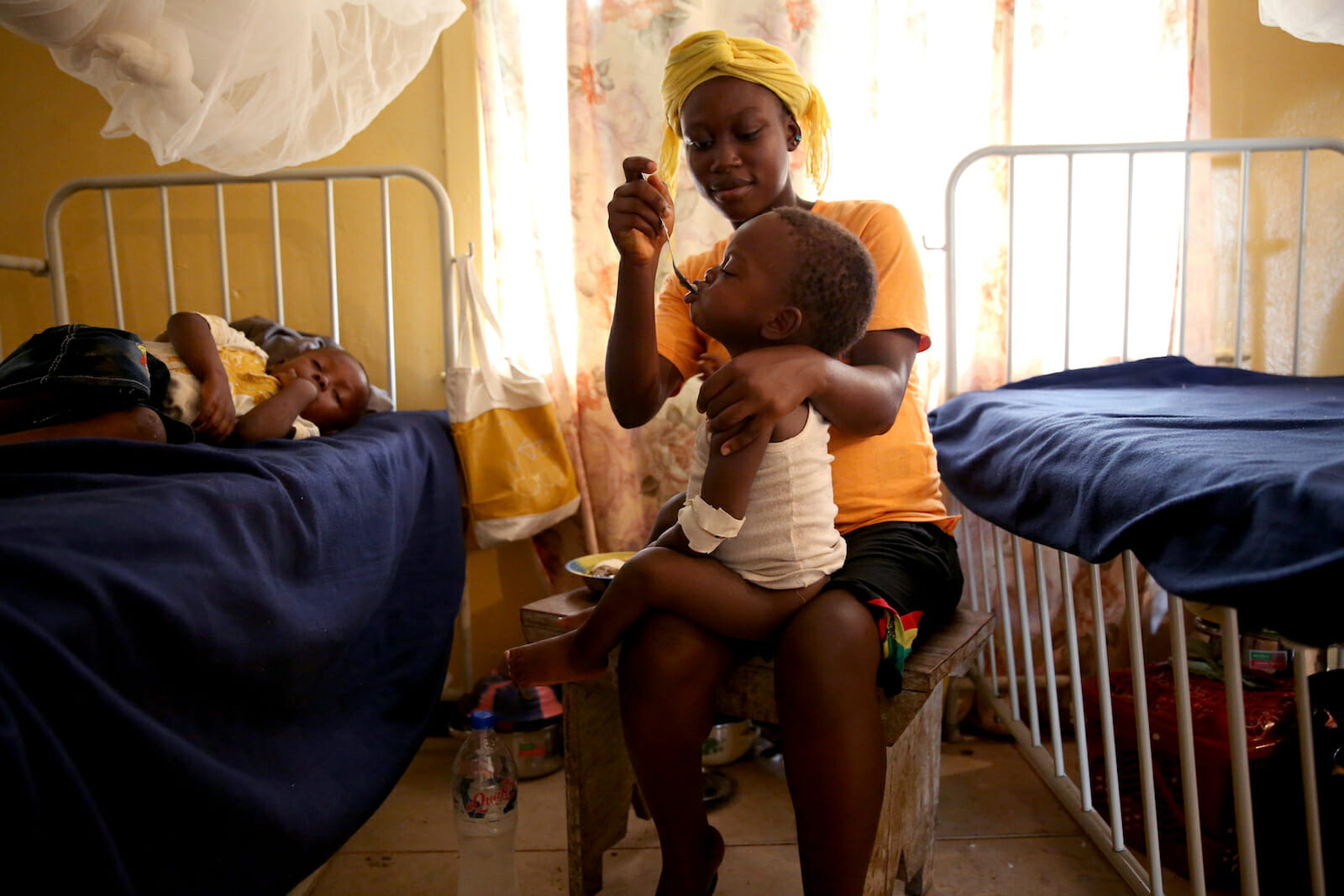
Combatting Infant Mortality: A Priority for Africa
Though infant mortality rates on the African continent remain at worrisome levels, they are continuously diminishing. Government and social efforts are starting to bear fruit, shaping a better future for African women and children.
Throughout the world, 7,000 new-borns continue to die each day. If nothing is done, another 30 million new-borns will die in the first 28 days of life before the year 2030. In 2016, 15,000 children under the age of 5 died every single day, according to a United Nations report. The large majority of neonatal deaths take place in South Asia (39%) and sub-Saharan Africa (38%).
In sub-Saharan Africa, 1 in 36 children dies during the first month of life, compared with 1 in 333 in developed countries. Unless considerable progress is made, over 60 countries will fail to meet the United Nation’s Sustainable Development Goal 3 (SDGs), which seek to put an end to avoidable new-born deaths before 2030, and half of these nations will far surpass the target of 12 new-born deaths for every 1,000 live births before 2050. It is unacceptable that, in 2018, pregnancy and childbirth continue to put women in danger, and that so many new-borns continue to die every day.
But despite these alarming statistics, progress is being made. Thanks to the efforts of governments and civil society, it is estimated that some 50 million children under 5 have been saved since 2000. Countless more lives can be spared by reducing inequality, and doubling down on efforts to impact the most marginalised families by broadening access to information and quality healthcare.
We must prioritise improving the quality of services and the speed with which care is received prior to and following childbirth. The majority of causes of infant death are clearly avoidable: they include pneumonia and diarrhoea, which top the list of infectious diseases and have cost the lives of millions of children around the world. Facilitating pregnancy monitoring, access to qualified healthcare professionals during childbirth, and broadening access to vaccines, breastfeeding, and affordable medications, will save even more lives.
In Côte d’Ivoire, the situation is also moving in the right direction. Infant mortality has fallen by half in 20 years. The rate of mortality decreased from 112 in 1,000 live births in 1998 to 60 in 1,000 in 2016. And the under-five mortality rate almost halved, from 181 to 96 in 1,000 over the same period.
These encouraging results speak to the efforts undertaken in the country to improve access to health services, education, and patient care for Ivorian women and children.
The women and children’s hospital in Bingerville: a unique service in Côte d’Ivoire
To support these efforts, the Children of Africa Foundation, over which I preside, inaugurated the first women and children’s hospital in Côte d’Ivoire in March 2018. A private, non-profit establishment with the goal of serving the public, the hospital aims to reduce maternal, neonatal, infant and child mortality and morbidity. Its goal is to better care for the women and children of Côte d’Ivoire, by offering quality healthcare at a reasonable cost, accessible to all regardless of social status.
Its technical equipment is unmatched in Côte d’Ivoire: 123 beds, a surgical ward with seven operating rooms, a resuscitation room, two ambulatory surgical suites, etc. Thanks to the dedication of its staff of 475 carefully-selected healthcare professionals, including doctors, nurses, and caregivers, as well as administrative staff and other human resources, the establishment offers external consultations, gynaecologic, paediatric and surgical care, and includes several medical analysis and medically assisted procreation laboratories.
For children, the hospital offers comprehensive care for neonatology (premature infants, neonatal resuscitation), general paediatrics (ambulatory care, transfusions), paediatric surgery (digestive, urologic, traumatological, etc.), as well as paediatric oncology, ENT, and ophthalmology. For mothers, it also offers comprehensive care for each stage of maternity: obstetrics (prenatal consultations, obstetrical emergencies, childbirth and hospitalisation), gynaecology (consultations, emergencies and hospitalisations), medically assisted procreation (insemination, in vitro fertilisation, counselling) and pelvic floor rehabilitation.
As I noted during its inauguration, the Bingerville hospital is for the women and children of Côte d’Ivoire. I am convinced that it will play a role in reducing the infant mortality rate in Africa, and in bringing the country up to par with the standard of care in other regions of the world. Our children are the future of our continent, and we must do everything in our power to facilitate their earliest steps in life.

